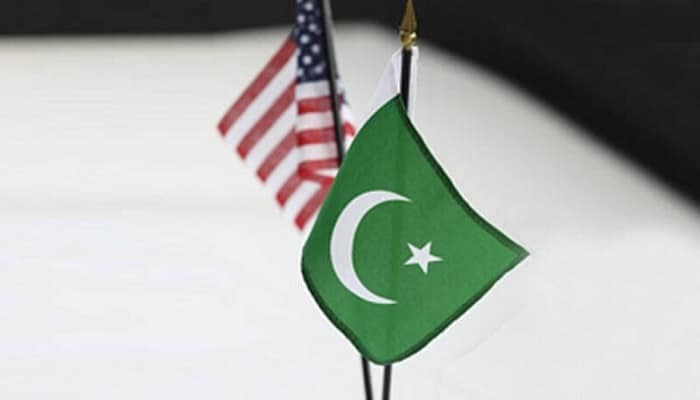PNN – After the victory of Donald Trump in the American elections, Pakistani statesmen were trying to remove the dust of mistrust from the fragile relations between each other, now they are worried about Washington’s unprecedented approach in threatening Islamabad, and this situation has led to Pakistan’s desperation to try to normalize relations with the United States.
According to the report of Pakistan News Network, recent signals from the White House against Pakistan’s strategic plans, including nuclear assets and the development of missile capabilities, have once again highlighted the old mistrust between the two countries; and it seems that Islamabad is in a dilemma of ignoring the excesses of the United States or confronting the hostile approach of Washington.
In addition to these challenges, the United States’ suspicion of Pakistan’s missile and defense capabilities and considering it a threat has led to such an idea among Pakistani statesmen that this can be used by the new President of the United States, Donald Trump, as a lever of pressure against Islamabad.
Dr. Zafar Nawaz Jespal, an expert on nuclear affairs and the head of the Department of Political Science and International Relations at Quaid-e-Azam University in Islamabad, wrote in a note titled Pakistan-US Relations in 2025: The strategic competition between China and the United States, Washington’s alliance with India, and Benjamin Netanyahu’s (Prime Minister of the Zionist regime) attempt to create a new order in the Middle East with the complicity of the United States may have reduced the importance of Pakistan, but the importance of this country in international geopolitical calculations.
He said: These factors will shape the approach of the future Trump administration towards Pakistan in 2025. This means that their future relationship will depend on the Trump administration’s engagement with China, India’s achievement of its strategic autonomy, and the situation in the Middle East.
Read more:
Zafar Jespal continued: Prior to December 19, 2024 (prior to the unprecedented statements made by the White House Deputy National Security Advisor), no US official had ever indicated that Pakistan was developing a long-range missile capability to neutralize targets even in the United States.
Pakistan has paid a heavy price as a non-NATO ally of the United States during the two decades of the so-called “war on terror,” he said. Islamabad’s sacrifices of life and money for its secret dealings with the Afghan Taliban also failed to win the trust of the Americans, and during the war, senior US officials forced Pakistan to “take more action.”
Zafar Jaspal added: Instead of acknowledging Pakistan’s positive role in the Doha Agreement (peace agreement with the Afghan Taliban), the Americans blamed Pakistan for its failure in Afghanistan. This added a highly destabilizing variable to the relationship between the two countries and effectively nullified Pakistan’s initiatives to improve bilateral relations with the United States after the withdrawal of American forces from Afghanistan in the summer of 2021.
The Pakistani analyst added: White House Deputy National Security Adviser John Feiner’s spurious conclusion last month that Pakistan is an emerging threat to the United States has surprised Pakistanis and raised strategic alarm bells in Islamabad.
The professor of Quaid-e-Azam University Islamabad pointed out that Pakistan is not available to the US to contain China, nor is it willing to participate in the creation of a new Middle East. Islamabad’s pursuit of a neutral foreign policy and US alliance policy in its neighborhood could shape the new Trump administration’s approach towards it.
Trump’s unprecedented words caused a wave of condemnation in Pakistan, and the then government of Islamabad, while acknowledging the continuing atmosphere of mistrust between the two countries, demanded Washington’s respect for Pakistan’s sacrifices in the fight against terrorism.
The fragility of relations between Islamabad and Washington continued until the last days of Trump’s presidency, but during Joe Biden’s era, not only was there no progress in the relations between Pakistan and the United States, American statesmen were accused of interfering in Pakistan’s internal affairs and even conspiring to overthrow the then government of this country. Even after winning the US presidential election, Biden did not make any phone contact with the then prime minister of Pakistan (as the head of state in the country).

